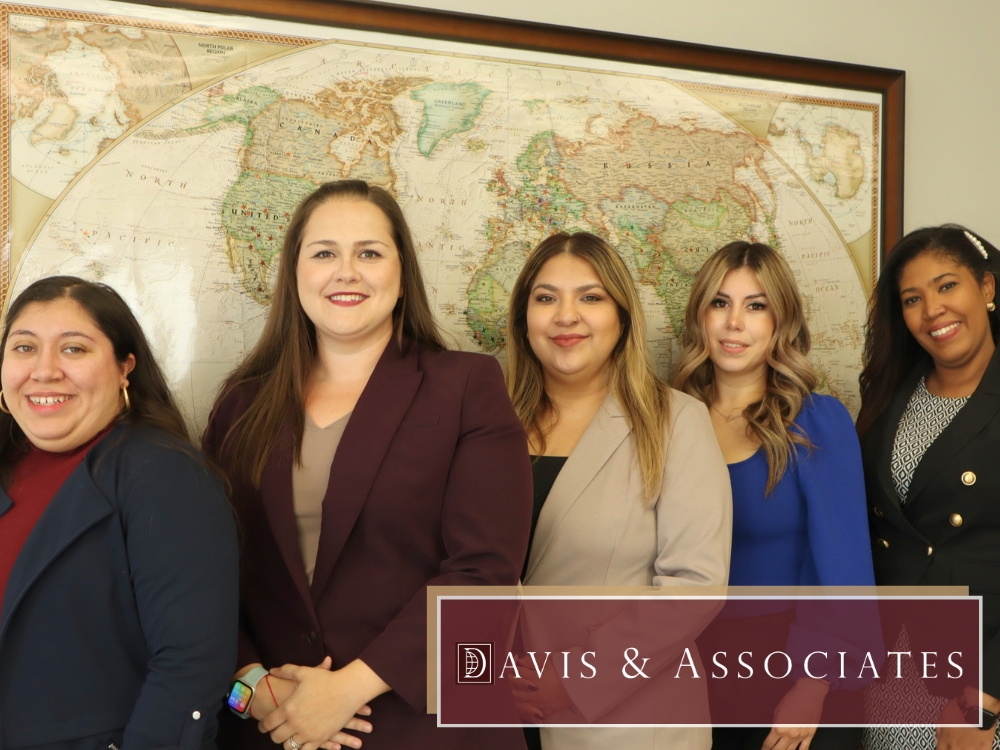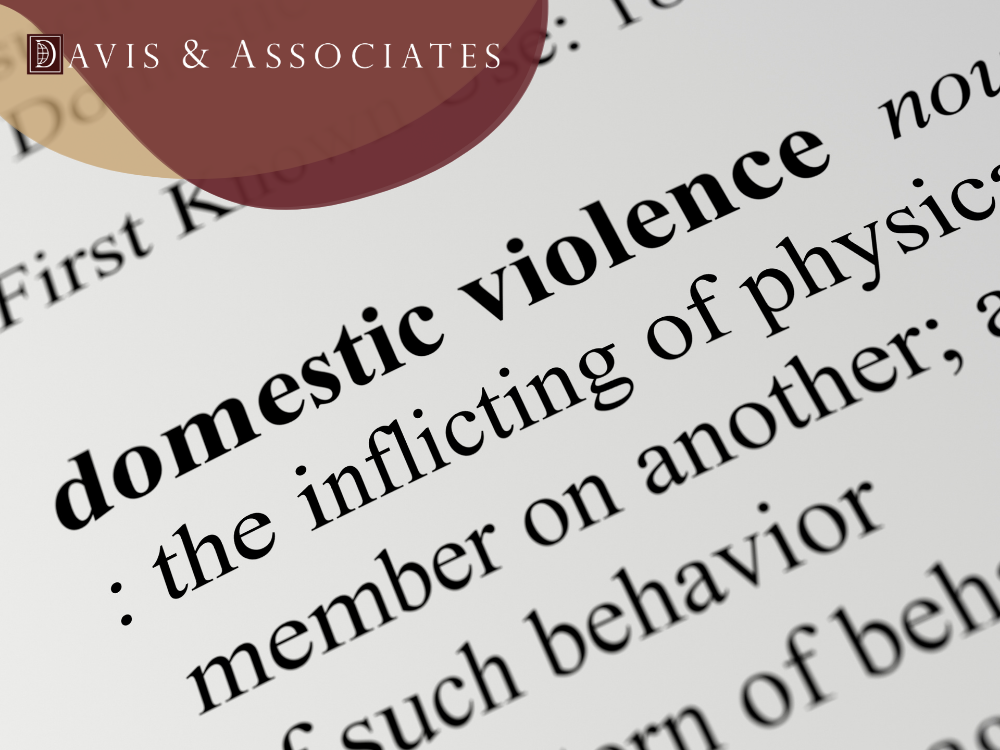Family Immigration Lawyers in Houston & Dallas
Helping Families Reunite and Build Their Future in the U.S.
At Davis & Associates, our family immigration lawyers in Houston and Dallas provide skilled legal support across all areas of family-based immigration, including:
- Family-sponsored immigration
- Green card and visa applications
- Adjustment of status
- Sponsorship for undocumented spouses or stepchildren
- VAWA petitions for victims of domestic abuse
- Waivers and appeals
- Deportation defense
- Consular processing
- Naturalization
- Temporary visas for work or study
- Employer compliance
- Investment and employment-based immigration
We Care About Families, Not Files
We know that every family immigration case is about more than paperwork—it’s about real people and families with hopes and dreams. As a trusted family immigration law firm in Houston and Dallas, we are committed to treating every client with care, respect, and compassion. Our goal is to guide you through the family immigration process with clear communication and strong legal support. We take the time to understand your unique situation, answer your questions, and explain each step. Our experienced family immigration lawyers are here to help you feel confident, informed, and supported.
We don’t just handle cases—we help families in Texas build a better future in the United States.
FAMILY IMMIGRATION LAW FIRM SERVICES
For many people, the easiest way to get a US Immigration Visa or Green Card is through Family Sponsorship.
Some kinds of family sponsorship include:
OUR FAMILY IMMIGRATION LAW FIRM HELPS WITH FAMILY-BASED VISAS

Navigating the U.S. immigration system can be overwhelming—especially when your goal is to reunite with family. Our experienced family immigration lawyers in Houston and Dallas are here to make the process easier, clearer, and less stressful.
If you are a U.S. citizen or lawful permanent resident in Texas, you may be eligible to sponsor a family member for a green card through a family-based visa. This process involves filing a petition with U.S. Citizenship and Immigration Services (USCIS), submitting supporting documents, and waiting for visa availability—often a lengthy and complex process.
How Long Does the Family-Based Visa Process Take?
The timeline for a family-based green card varies based on several factors:
- Your immigration status (U.S. citizen or green card holder)
- Your relationship to the person you're sponsoring
- Your relative’s country of origin
- Visa category and current visa bulletin wait times
In some cases, a visa may be available immediately—for example, for the spouse of a U.S. citizen. In other situations, such as sponsoring a sibling or adult child, the process may take several years—or even decades. Family visa processing times typically range from 6 months to over 20 years.
Our team will help you understand where your case stands and what to expect, so you’re never left in the dark. We focus on building clear strategies and realistic timelines that support your family immigration goals in Texas.
 Family Immigration Options
Family Immigration Options
Sponsoring An Undocumented Spouse
If you’re a U.S. citizen or lawful permanent resident and your spouse is undocumented, you may be wondering if you can still help them get a green card. The answer is yes—and it happens every day.
Our family immigration lawyers in Houston and Dallas can help you explore available options. Depending on your spouse’s immigration history, they may qualify to apply for a green card through adjustment of status or consular processing. In some cases, a waiver may be required to forgive unlawful presence or other immigration violations.
Immediate Relative Visas
Certain relatives of U.S. citizens qualify for immediate relative visas, which allow them to apply for a green card without waiting for a visa to become available.
To qualify as an immediate relative, you must be one of the following:
- Spouse of U.S. citizens
- Unmarried child under 21
- Parent of U.S. citizens (if the citizen is 21 or older)
Individuals who are immediate relatives do not have to wait for a visa to become available to continue with the immigration process, as a visa is immediately available for them. The only delay in securing entry is completing the different phases of the process.
Family Preference Visas
If your relative does not qualify as an immediate relative, they may still be eligible under the family preference visa categories. These visas are available to both U.S. citizens and green card holders, but they are subject to annual limits and longer wait times.
Family Immigration preference categories include:
- Unmarried adult children of U.S. citizens
- Spouses and children of green card holders
- Married children of U.S. citizens
- Siblings of U.S. citizens
Once approved, your family member can become a lawful permanent resident and live and work anywhere in the U.S. We’ll help you understand the timeline and prepare the necessary forms for a strong application.
Form I-130 for a Stepchild
As a U.S. citizen or lawful permanent resident, you may also be able to sponsor your stepchild for a green card by filing Form I-130 (Petition for Alien Relative).
To qualify:
- The marriage between the biological parent and stepparent must have occurred before the child turned 18
- The child may be considered an immediate relative, depending on age and marital status
Our experienced team of family immigration attorneys will guide you through the petition process and ensure your family relationship is properly documented.
VISAS FOR CERTAIN VICTIMS OF DOMESTIC VIOLENCE

In family immigration cases, safety should never be compromised. If you are an undocumented immigrant facing abuse from a U.S. citizen or lawful permanent resident, you may be eligible to apply for a green card on your own through protections under the Violence Against Women Act (VAWA). This powerful law helps survivors of domestic violence—spouses, children, and parents—gain lawful permanent residence without relying on their abuser.
At Davis & Associates, we understand how sensitive these situations can be. Our experienced family immigration lawyers in Houston and Dallas are here to provide the compassionate, confidential legal support you need to move forward and protect your future.
For full details on eligibility, documentation, and how we can help, visit our VAWA page.
Adjustment Of Status For Undocumented Immigrants
Adjustment of status allows certain undocumented immigrants to apply for a green card without leaving the United States. This process can be complex, but with the help of our experienced family immigration lawyers in Houston and Dallas, it’s possible to take this important step toward legal residency.
You may qualify if:
- You entered the U.S. without authorization or overstayed your visa
- A visa has become available through a family member or employer
Depending on your immigration history and eligibility, you may be able to complete the green card process from within the U.S. or you may need to apply through a U.S. consulate abroad.
Our knowledgeable team will help you understand which option fits your situation and walk you through every step of the process—from eligibility to filing to final approval.
Adjustment of Status Through 245(i)
Some undocumented immigrants may still qualify for a green card under Section 245(i) of the Immigration and Nationality Act—even if they entered the U.S. without authorization or overstayed a visa.
Who Qualifies for Section 245(i)?
You may be eligible to adjust your status under 245(i) if:
- A visa petition or labor certification was filed for you on or before April 30, 2001
- If filed between January 14 and April 30, 2001, you must show you were physically present in the U.S. on December 21, 2000
- You are willing to pay a $1,000 penalty fee
Even if you are applying through a newer family-based petition (like a U.S. citizen spouse), the original petition can still help you qualify under this provision.
Parole in Place (PIP) for Military Families
Parole in Place is a special benefit for undocumented family members of U.S. military personnel, veterans, or reservists. It allows eligible relatives—such as spouses, children, or parents—to stay in the U.S. and apply for a green card without being deported.
PIP also offers temporary protection from removal, eligibility for work authorization, and a pathway to adjustment of status.
Since PIP is not guaranteed, each case is carefully reviewed by USCIS. Our experienced family immigration lawyers can help prepare a strong case that highlights your family’s unique situation and connection to military service.
Important Legal Considerations Before You Apply

Not everyone who qualifies to apply for adjustment of status will qualify for permanent residency. Immigration law has specific bars related to an applicant's criminal, immigration, and medical history that can prevent obtaining permanent residency. Consulting with a knowledgeable family immigration lawyer is important before applying for any immigration benefit. Missteps in the application process can lead to severe consequences, including deportation.
Family Immigration Lawyers You Can Count On
At Davis & Associates, we help families across Houston and Dallas secure their future in the United States. We take pride in offering legal support with compassion, clarity, and personal attention. Whether you're applying for a green card, navigating a VAWA petition, or unsure if you're eligible under Section 245(i), we are here to help.
Contact us today to schedule your consultation. We’re ready to guide you through your next step in family immigration with confidence.







